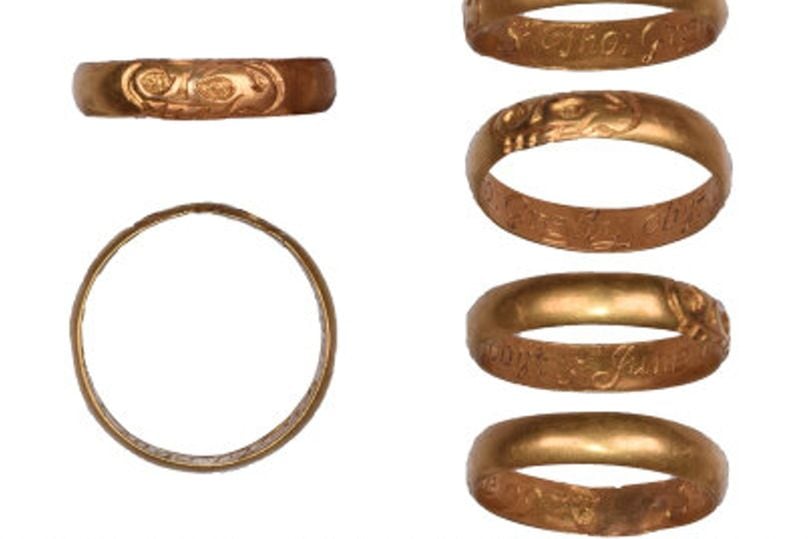Detective discovers gold funeral ring; declared treasure
Categories: Nálezy nejenom s detektorem ve Velké Británii a Irsku
The well-preserved gold ring was discovered in a field near Walton-on-Trent using a metal detector by Mr John Startin-Taylor in 2021. He reported the find through PAS and it was officially classified as treasure by the coroner on Thursday 5 January. It is a mourning ring of the kind given to survivors. It dates from the late 17th century and belonged to a prominent sheriff and nobleman, a member of Parliament.
According to Meghan King, liaison officer for Derbyshire and Nottinghamshire, the ring was made in a classic design. On the outside of the ring is a detailed design with the initials STP within a small shield. The inside of the ring shows an engraving with the inscription 'Sir Tho: Gresly obit 5 June 99', which refers to the High Sheriff of Derbyshire, Sir Thomas Gresley, 2nd Baronet of Drakelow Hall, born 1629 and died 5 June 1699.
Thomas Gresley was from a very ancient Norman family which can be traced back to the Vikings. He was the venerable and first of the following five generations of Gresleys - the chief shGresleys in Staffordshire who served in office from father to son until 1780 and, after a gap of more than a century, in the early 20th century. century. According to the records, Thomas's funeral was a grand affair, conducted with full honours.
The Gresleys were one of the most powerful families in England. They owned Drakelowe as early as the 11th century. They held the land and control of the area continuously for over 900 years, for 28 generations, until 1934 when the last of its inhabitants, Sir Nigel Gresley, left Drakelow Hall. The estate had to give way to a coal-fired power station.
According to the Treasure Act 1996, all artefacts believed to be older more than 300 years old and made of at least 10% gold or silver must be reported for assessment to determine whether they are treasure. After a short hearing, Assistant Coroner Louise Pinder concluded that the ring met the requirements of the Treasure Act.
After announcing the outcome of the hearing, Mr Startin-Taylor said, "Thank you, it was really exciting. It would be lovely if I could go to the same field and find a ring celebrating his birth," he said, adding that he would like to keep the ring in the area of the find. By law, museums have the option to purchase the treasure first, with the proceeds split between the landowner and the finder. The Derby Museum has expressed interest in the ring, so apparently the finder's wish will come true, at least once...
Roman Němec
Sources: itv.com, derbytelegraph.co.uk, ground.news, wikitree.com


The article is included in categories: